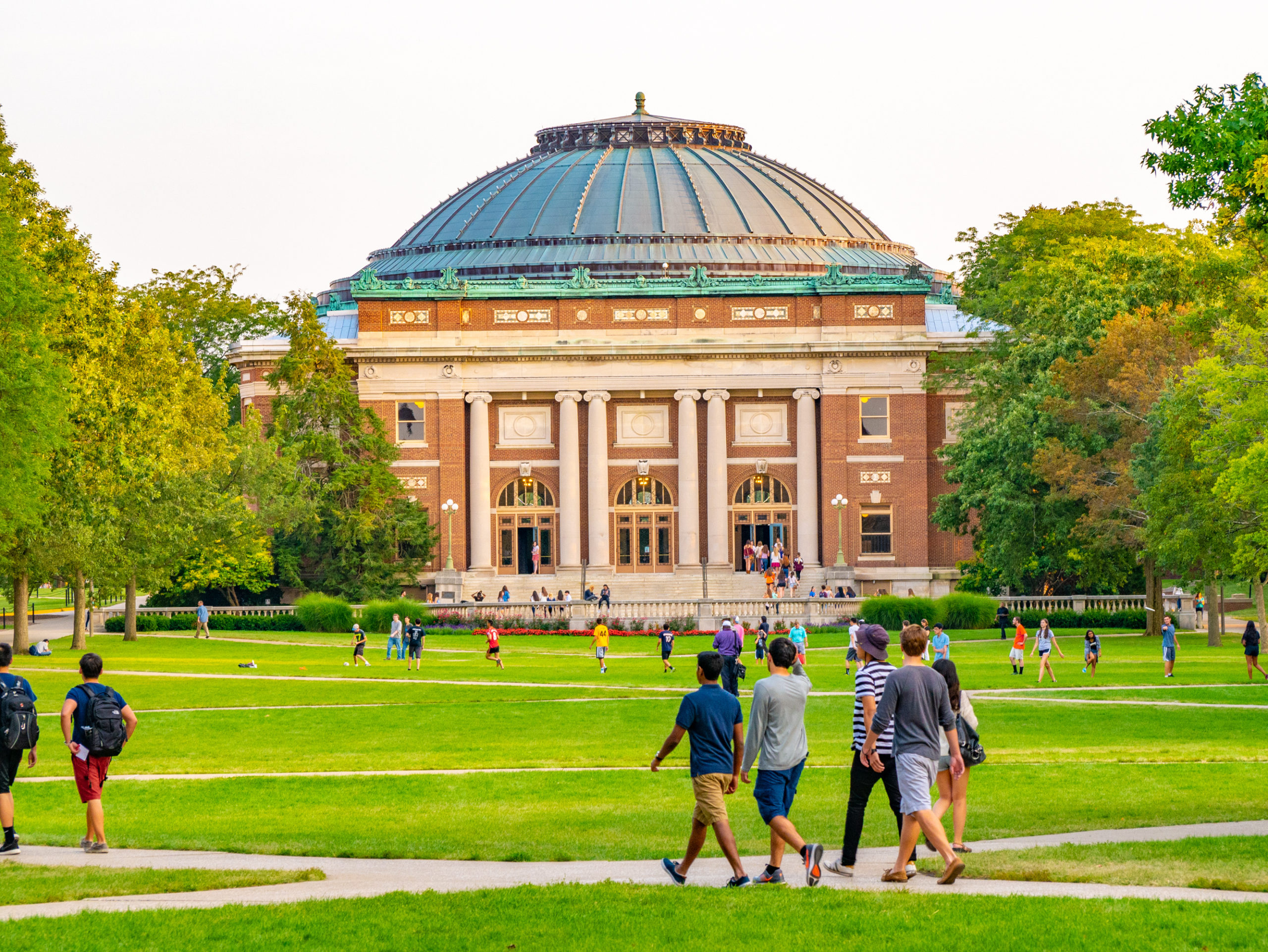
Key Factors When Choosing A College
Choosing the right college for you is important. Where you attend college will have a lasting impact on your personal and professional life. Many people have probably told you that it is one of the most important decisions of your life.
But the truth is, many aspiring college students select a college based on emotion or a gut feeling. However, an important decision such as this one should undergo a higher level of scrutiny.
If you're currently looking at colleges, you're going to want to consider these key factors when choosing the right college for you:
- Location
- Size
- Cost
- Academic Quality
- Campus Safety
- Choice Of Majors
- Campus Culture
Below are some important factors to consider when choosing a college. These factors start general and get more specific. As you narrow down your list of schools and start reaching out to college coaches, you're going to want to ask more detailed questions and dig deeper to find out if that school will be a good fit for you.
Choosing The Right College For You
Academics
Does the college you're considering offer classes that interest you? You don't need to declare a college major right away—but you're more likely to succeed if you're engaged by the options available to you. Do you prefer informative lectures or lively discussions? Research and analysis or hands-on experience and practice? Writing papers or working in small groups? Look for the experience you'll need to feel challenged and the support you'll need for success—peer tutoring, accessible professors, mentorship, and career services Look into course and program descriptions, reviews of professors, and audit some classes when you visit the college campus
Campus Culture
Do you want a big school or a small one? An urban campus or a campus in the country? Every college has its own unique offerings. Start to narrow down your list and make decisions about the size of the student body and location, then move on to aspects you can identify by trusting your gut instincts: some of the personalities, politics, and interests of the student body. Culture is everything when choosing the right college for you.
Financial Aid
College tuition is one of the largest concerns for students and parents. It's important to be realistic about your personal and/or family's finances and avoid taking on unreasonable debts —but it's also important not to neglect a school on your list because of its price point.
Many colleges offer financial aid packages as grants and scholarships. Raising your grades and your SAT or ACT scores will make you eligible for financial aid.
Career Development
Find out how the school supports students in preparing for the professional world. Do they offer resume writing workshops? Practice interviews? Networking events with alumni? College admission officers and career counselors are happy to highlight their institutions’ success stories. If you’re not sure yet which direction you want to go in, see if career coaching and personal evaluations are available for students. Many colleges extend career support to alumni, too, which can be an asset in the early post-grad years. As more and more students factor post-graduate plans into their college decision process, college admission and recruitment officers are emphasizing career support and placement when pitching their schools to prospective applicants.
Develop A Short List
A lot of thought should go into developing a short list of schools you would like to attend. Really think about location, enrollment size, majors and programs, the people on campus, opportunities outside of the classroom, cost and selectivity when crafting a list. It's important to make this your top priority when choosing the right college for you.

Rank Your Priorities
Take your time and weigh the pros and cons of a particular school. Consider your personal and educational needs as you'll be spending the next four years at this college. It's important that students are aware of what they seek for their future because if they don't have that foundation, it's hard to really search for colleges.
Revisit Schools
While you should have gotten a feel for campus life during initial college tours, take another trip to each school and come up with a list of 10 questions. Know what to ask on a college visit, and don't leave with any questions unanswered. Meet with current student-athletes to gauge campus culture, as they can provide insight about social activities and classroom experiences for certain majors. If a second trip is out of the question, take another look at the campus via a virtual tour and reach out to college officials or students with your follow-up questions.
Look Past The Price Tag
Tuition costs vary by college. U.S. News data for the 2021-2022 school year indicates that ranked in-state public colleges tend to have the lowest sticker prices at an average of $10,338, compared with $38,185 at private schools. While private colleges tend to come with a higher price tag, there may also be more institutional aid, which means students and their families may not pay the full tuition cost.
Financial Aid Awards
If you're looking to graduate from college with little or no debt, carefully compare financial aid packages. It's wise to look beyond the tuition and see what additional costs apply, like housing and meal plans. Understand the difference between grants, scholarships, and loans, which you'll have to pay back eventually. Some colleges offer generous financial aid packages meeting full financial need, meaning those students are not required to take out loans.
Investigate Job Connections
One reason you go to college is to set yourself up for a job, so consider each school's career center. Make sure that the resources are sufficient to give you the help you'll need. Career centers offer a variety of services, including helping students develop soft skills, providing employment and salary data, promoting internship leads, conducting mock interviews, explaining hiring processes and building connections with alumni.
Dealing With Rejection
Finding out you weren't accepted to a top-choice college can be tough, but try not to dwell on the rejection. Some schools are highly selective, with acceptance rates in the single digits. But at most colleges, the overall odds of admission are good. The average acceptance rate among the 1,410 ranked colleges that reported fall 2020 admissions statistics to U.S. News, for instance, was 70.1%.

The Most Important Factor In Choosing A College Is Fit.
Choosing a college because your friends are going there or because of where it ranks on a list does not take into account who you are and who you will become. College is a match to be made, not a prize to be won. Finding a good fit requires time and careful consideration. Start with a simple question, large or small school? Here are some ways to know when choosing the right college for you.
Large College Might Be Good If:
Small College Might Be Good If:
- You depend on support and guidance from teachers. You have trouble recognizing when you need help, and rely on your teachers to step in when you need them.
- You’re okay with having fewer club, sport, and activity options. (Although there will still be plenty at almost all schools, you will just find a larger variety, as well as more specialized options at larger schools)
- You want your professors and classmates to know who you are, and you want to interact with them in a small class setting.
- You want less competition for opportunities (scholarships, work study positions, etc.). This could even mean there are actually more opportunities available to you because there is much less competition than there would be at a large school.
- You quickly get overwhelmed and stressed around large groups of people.You want your adviser to know you well and to keep on top of requirements for you, alerting you if you’re missing something or reminding you what classes you need to take.
- You want the whole school to feel like a community. You enjoy seeing familiar faces and running into acquaintances everywhere you go.
When you visit, try to build in time to sit in on classes, eat in the dining hall and hang around in the student center or other high-traffic areas. That will help you imagine yourself as part of the community.
Talk to a few students and ask if they would make the same college choice if they had to do it again. Go back to the first item in this list as you consider the information you’ve collected about the colleges. You will have great options!
Get The Most College Exposure Possible
College ID Camps are a great way to feel out multiple college opportunities at once and receive one-on-one time with college coaches around the county. EXACT offers countless valuable opportunities that fuel your college search and bring confidence to your ability to be recruit ready.

Why Choose EXACT College ID Camps?
EXACT’s College Network
When it comes to choosing a college ID camp, you want to make sure that you’re choosing a camp that offers you access to a large network of NCAA coaches. EXACT does exactly that, opening you to a large pool of experienced college coaches from across hundreds of colleges.
One-on-One College Evaluations
How do you improve without feedback? At EXACT ID camps, all our coaches are professionals who understand that each player is distinct and uniquely gifted. As such, we give individual feedback that prepares you for the next level.
Personal Connections
At EXACT ID camps, you get to meet and greet college coaches, giving you an opportunity to build your college connections ahead of your arrival in college.
Specific Training for Goalkeepers
We understand that the role of the goalkeeper in soccer is crucial and distinct. So, we offer position-specific training to goalkeepers. You also put all you’ve learned into action and receive helpful feedback during college-style training and games.
Mental Performance
Beyond the foundational training that every college ID camp offers, EXACT teaches you how to deal with adversity, stay focused, and remain confident and composed despite opposition during competitions.
College Training Sessions
At EXACT, our training sessions simulate college practice sessions and games. They are also handled by experienced college coaches. That way, you’re best prepared for college sports and are sure to settle in seamlessly when accepted into college.
Compete With The Best
You get a chance to meet and compete with the best players in the USA and around the globe. Without a doubt, this improves your sports skills as well as social interactions, making you even more attractive to colleges.
Kickstart Recruiting
At EXACT, we understand that you’re in a college ID camp because you someday want to be on a college team. So, we bring in college coaches who have handled collegiate sports recruitment time and time again. These coaches give you an insight into how college recruitment really works in person at the EXACT college ID camp. With insider information at your fingertips, you stand a better chance of being recruited to the right college for you.
